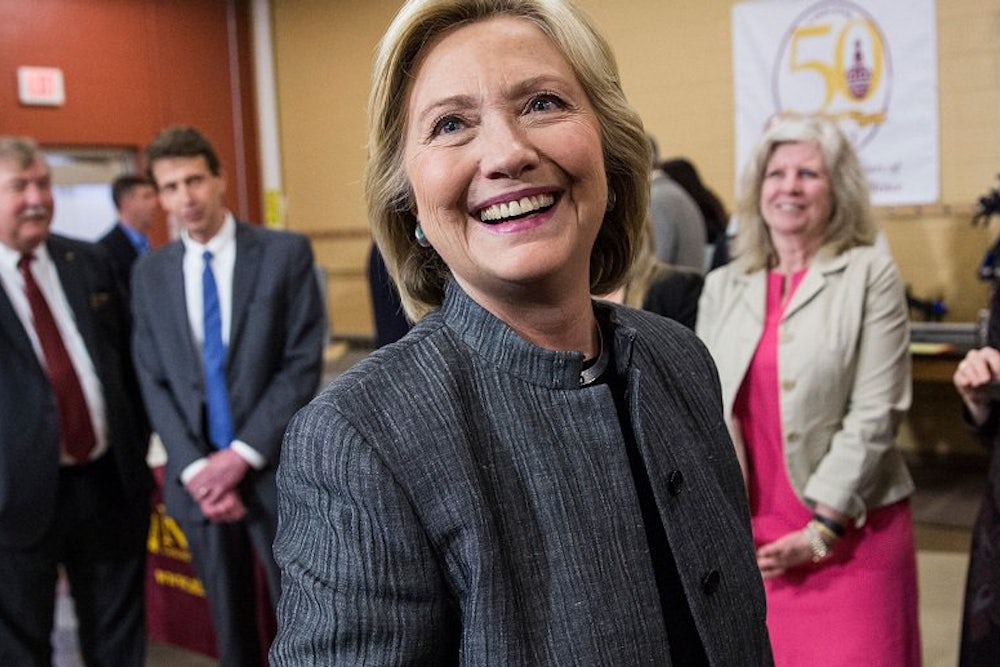According to the New York Times, former Secretary of State Hillary Clinton said in a meeting with economists earlier this year that she wanted to “topple” the top 1 percent. That phrasing has provoked a bit of a dustup on the right. “Oh, Piketty and Seaz, what have you wrought?” wrote the American Enterprise Institute’s Jim Pethokoukis, referring to economists Thomas Piketty and Emmanuel Saez, two of the leading researchers on income inequality. National Review and the American Spectator also took issue with Clinton’s remark.
What exactly did Clinton mean? When the Huffington Post asked the Clinton camp for clarification, an aide only made it more confusing:
No one in the room remembers this quote, and it doesn't sound like language she'd use. That said, our economy was nearly toppled in 2008 because the deck was stacked for those at the top and Hillary Clinton has said she's running to reshuffle the deck for everyday Americans so that it doesn’t topple again and people can actually get ahead. It’s a belief at the core of her entire career fighting and at the core of this campaign.
In the Times piece, Clinton wanted to “topple” the 1 percent. But in her aide’s telling, it’s the economy, not the 1 percent, that is toppled. Confused? Me too. But ignore the word “topple,” and Clinton’s position becomes clear: She thinks income inequality is a problem.
Journalists don’t have to parse Clinton’s language to find this message. She’s made it explicitly clear during the first 10 days of her presidential campaign. For instance, she’s called for a constitutional amendment to get money out of politics and criticized the pay disparity between CEOs and their workers. “There’s something wrong when CEOs make 300 times more than the American worker,” she said at a roundtable last week, adding, “There’s something wrong when hedge-fund managers pay lower tax rates than nurses or the truckers that I saw on I-80 as I was driving here.” Instead of talking about mobility and raising the wages of lower- and middle-class households—as conservatives often do—she’s expressly criticizing the rich.
Clinton has good reason for taking this view. The academic evidence indicates that areas with higher income inequality are associated with worse health outcomes. There’s also growing evidence that increased inequality is bad for economic growth. And the rich’s influence on politics grows with widening inequality, an Clinton wants to address through her support for campaign finance reform.
This should allay fears on the left that Clinton would run as a centrist, crafting her language carefully to avoid angering Wall Street donors. Instead, she’s going right after them. Not that those donors are worried. They know that Hillary has to make such comments to appease the left; they don't expect her to act on it. That's what worries progressives—that Clinton is all talk—which is why liberals like former Maryland Governor Martin O’Malley and Senator Elizabeth Warren will continue to pressure her to take a strong stand against income inequality.
Whether Clinton is truly concerned about inequality, or just saying so to win over the left, is hard to know. But she could’ve started in the center, supporting the Trans Pacific Partnership trade deal that President Barack Obama is promoting (and which liberals hate) while sidestepping questions on inequality. Instead, she’s positioned herself with Warren and company. Who knows how long that will last—but for now, progressives don't have a good reason to complain.
